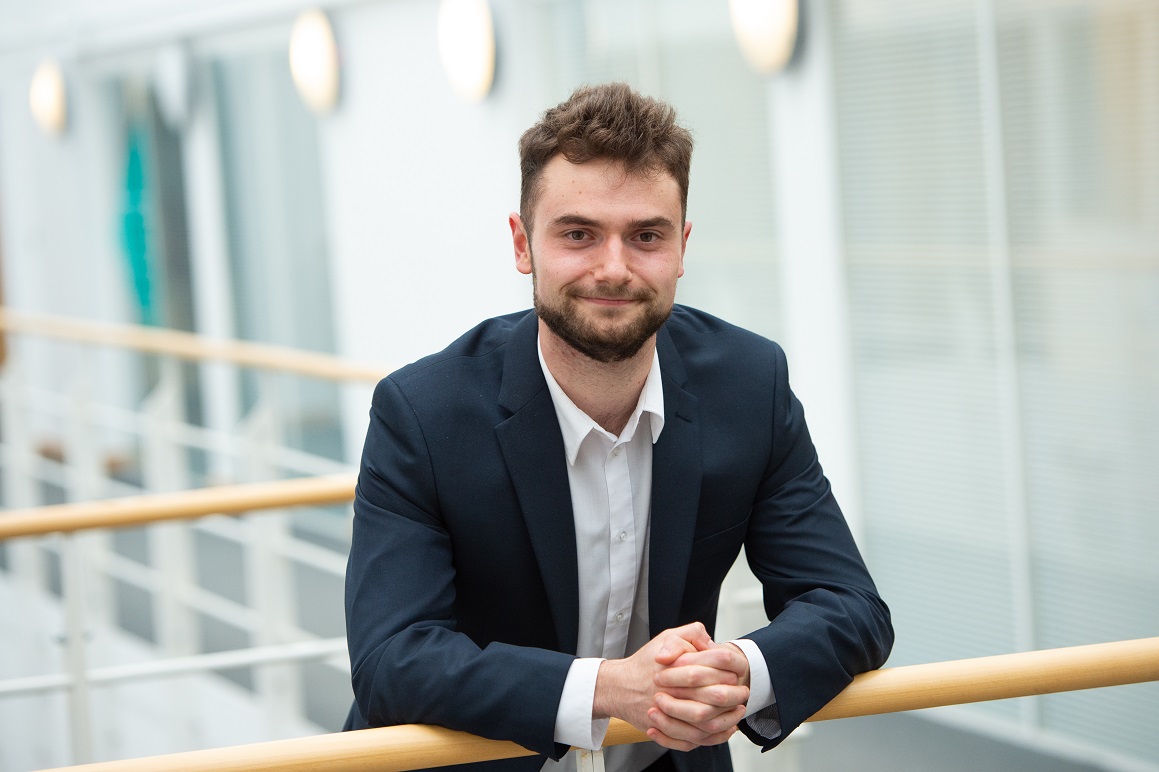The Professional training coaching scheme is an incredibly rewarding experience for both coachees and coaches alike. It enables you to see first-hand the difference you can make to your coachees as they develop in confidence and ability throughout the year. Simultaneously it enables you to develop and learn new skills that enhance your employability – such as group working and problem solving, making you a much more attractive candidate for employers. It is a process that I cannot recommend enough.

What do you think that you gained from the Coaching Scheme?
Flexibility – through adapting for each coachee. All of my coachees were incredibly different people from a variety of different backgrounds so they each needed individual guidance. Each had different experiences and skills and based on this learned how to tailor my recommendations of which sector/job each coachee could look at.
I’ve also gained the skill to encourage self-confidence in students. I found the one key factor that was affecting the performance of my second year students was that they had very little self-belief. I took it upon myself to install as much self-belief in every single one that I could, based on how I obtained my placement.
My employability has been greatly enhanced by the scheme too. I’ve been able to make new friends and connections from my coachees and from the employability and careers centre. Furthermore, it has also developed numerous key skills such as the below.
What skills did you improve?
Group working – the scheme is very much a 50/50 partnership. It requires equal effort from both coachees and coaches alike for a successful outcome. We also needed to both be reliable and honest as to where improvement was needed to further enhance the application. This tied with regular communication made for effective teamwork from start to finish.
Problem solving – There were often occasions when my coachee had reached the final stage of the application process but for one reason or another, they haven’t been offered the position. We would go through the process step by step slowly to unpick what had happened.
Understanding performance was difficult being that I couldn’t be there during assessment centres and interviews etc. There would usually be one or two areas highlighted by the coachee which we needed to resolve.
Nerves was a frequent area which needed improving which is both expected and understandable. I would address these by speaking about my own experiences about where I was positioned two years ago.
Adaptability – I found the need to change my approach and style of coaching. For example, one coachee wanted more time focused on creating their professional documents whereas another was much more relaxed and was happy for a chat before doing any work. Adjusting your approach to each individual is essential for a successful outcome.
What was the most rewarding part of the scheme?
Without a doubt it was seeing my coachees obtaining placements. Through the growth and regular meetings to discuss areas of improvements to see that end goal set out from day one to achieved, I found it incredibly rewarding. Seeing the difference first hand was incredibly motivational.
What challenges did you face?
One of my coachees had faced constant rejection during their application process. They had reached the final stage of the recruitment process on numerous occasions but weren’t offered a full time position because of more suitable candidates on the day. I found myself having to pick up my coachee from setback after setback who even considered dropping the placement year. To help, we would highlight positives to take away from each unsuccessful interview process.
How much of your time did the scheme take up?
This is a case by case basis and I focused my time depending on how much assistance each coachee needed. For some it would be an hour a week which is the expectation set out at the start of the scheme. If one of my coaches needed more help on a particular week, I would allocate more time.
I’ve found that in semester two I spent less time with my coachees as applications are perfected and their ability to perform well during the application process is enhanced. Overall, it averages out to around an hour a week per coachee.
What advice would you like to give final year students who want to take part in the coaching scheme?
I would without a doubt recommend the scheme to anyone. It is an incredibly rewarding experience to see firsthand the difference you’re making to people and the feeling when they obtain the placement is second to none. But above all else remember it is a journey. You meet in October and you may still be together in June. It is a commitment but it makes the reward of students getting placements all the better when they get one.
We are currently taking expression of interest. If you would like to be considered as a coach for the scheme or have any further questions, please email Tom Yates t.yates@surrey.ac.uk
